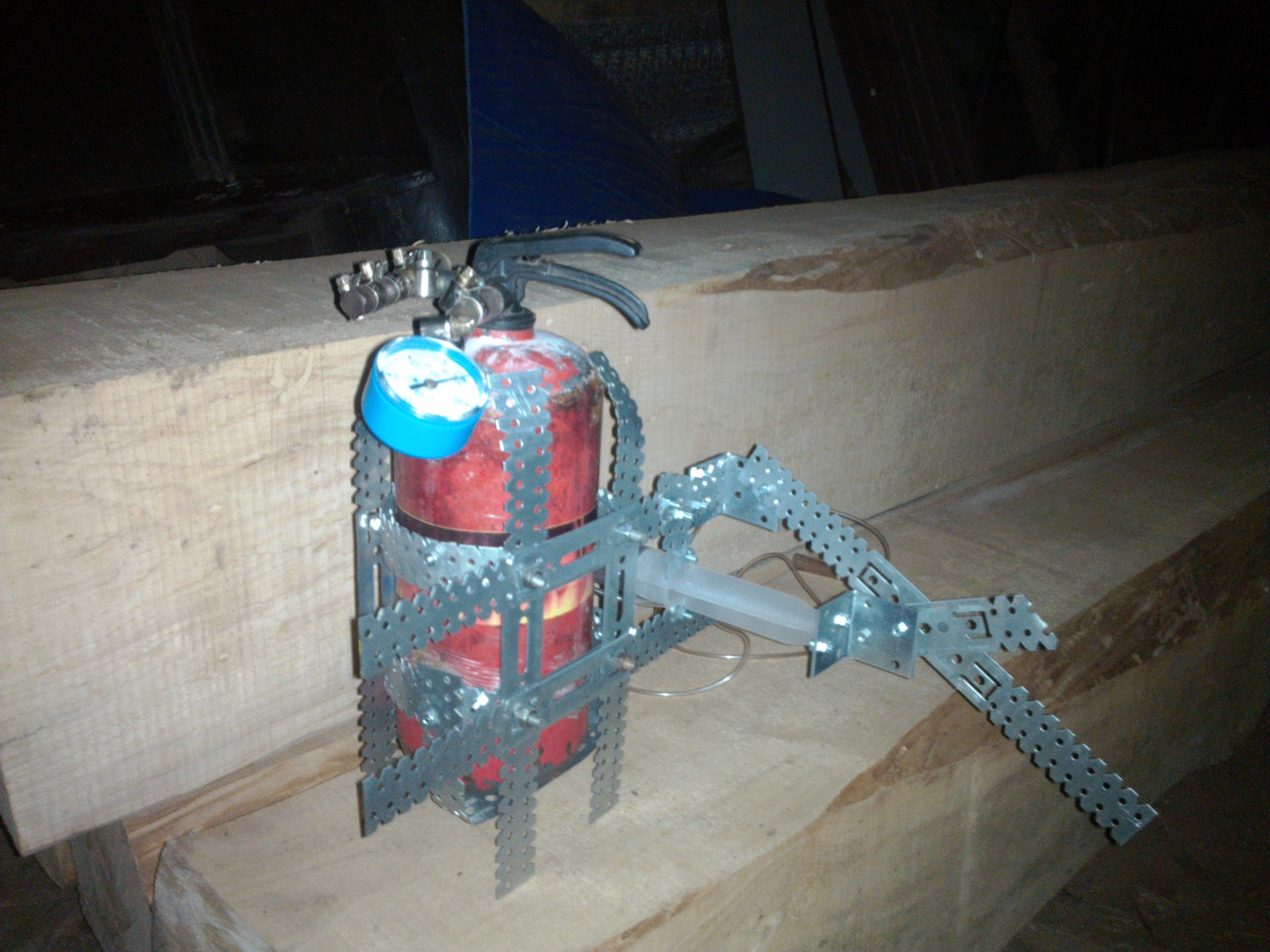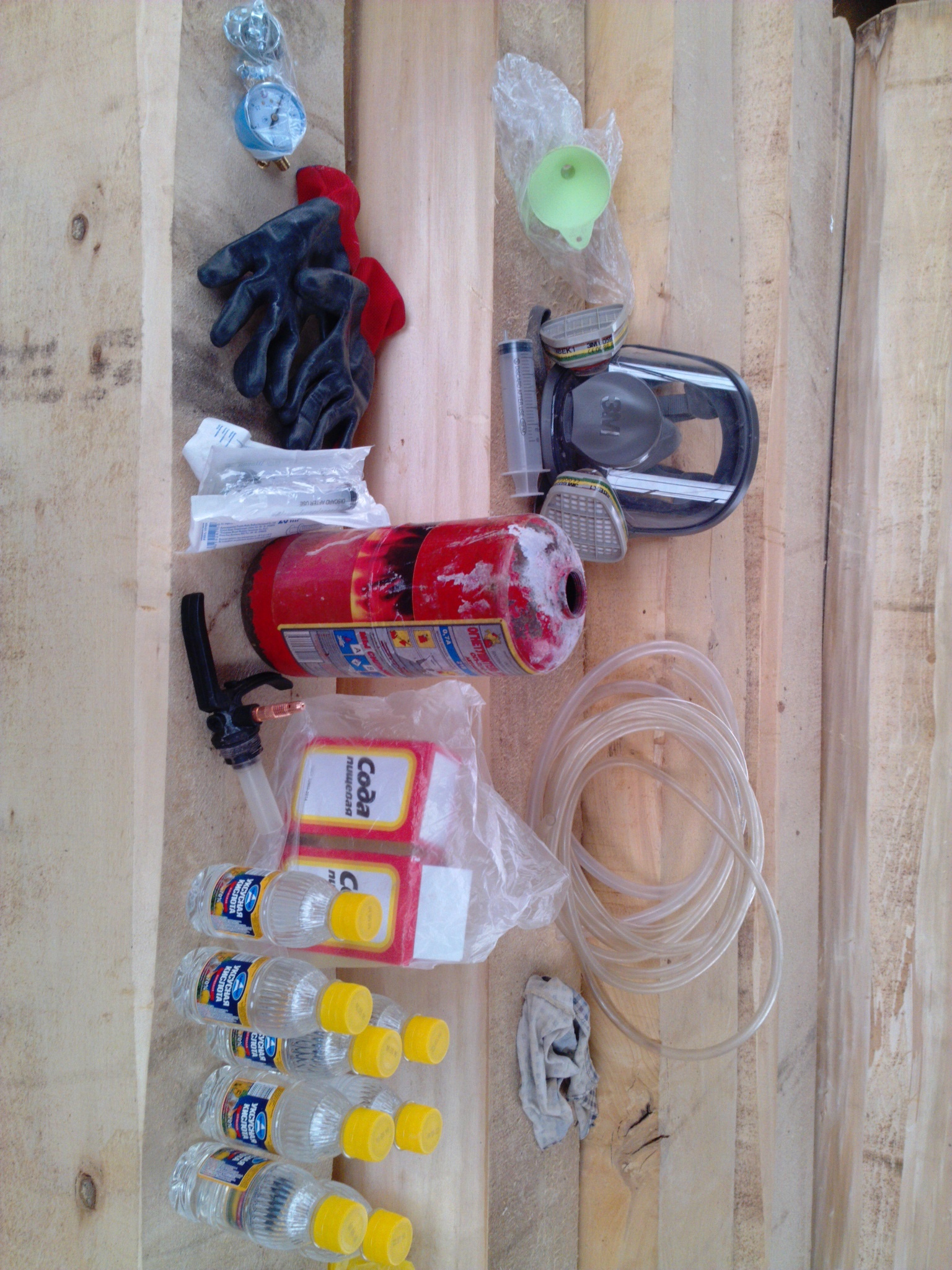Autonomous exoskeleton or how to gain pressure by extinguishing soda

Problem
Most modern exoskeletons suffer from a lack of energy. This is especially acute for models on pneumatic cylinders.
So, some solve the problem with portable compressors and batteries, but energy still ends quickly, and because of the extra batteries, the design will be heavier. Others simply connect the exoskeleton to stationary energy carriers and cease to be mobile.
Solution
But you can build pressure in a chemical way. For example, baking soda.

')
From the reaction equation follows:
- Acid is necessary for the reaction, which is why metal components will quickly fail;
- As a result, water, carbon dioxide and sodium acetate are released.
From 42 gr. mixable reagents (soda = 21 grams; vinegar 70% = 21 grams.) turns out 11 grams. carbon dioxide or about 5.5 liters.
This reaction takes place at all pressures, and reagents can be bought at almost any grocery store, which makes it quite promising.
Although vinegar and corrodes metal, but practice shows that he does it for a very long time. For best results, you can use gas cylinders for corrosive environments.
Preparing for the experiments

I used a 3-liter fire extinguisher cylinder, a release handle (first experiments), and later through an adapter attached a half-inch tap, a tee, silicone tubes, a technical pressure gauge, profile adapters (thickness = 1 mm) and medical syringes.
Start of experiments
The first experience was unsuccessful. The theoretical proportion reacted for too long.
In the second experiment, we had to experimentally find the proportion for a quicker reaction.
Second experiment
The third experiment was conducted with prototypes pnevoruk.
The first prototype without a balloon
Spoiler
Second prototype
Spoiler
Conclusion
Gradually, I returned to the first proportion (1 to 1), but already using a large amount of reagents.
Also, all the prototypes sagged heavily when lifting a small load (less than 1 kg.).
PS I ordered a polypropylene pipe of a large diameter from the master, when I come, I will use it instead of an iron cylinder, and instead of holders for a profile I will put a square pipe of 2 U-shaped profiles.
Source: https://habr.com/ru/post/397601/
All Articles